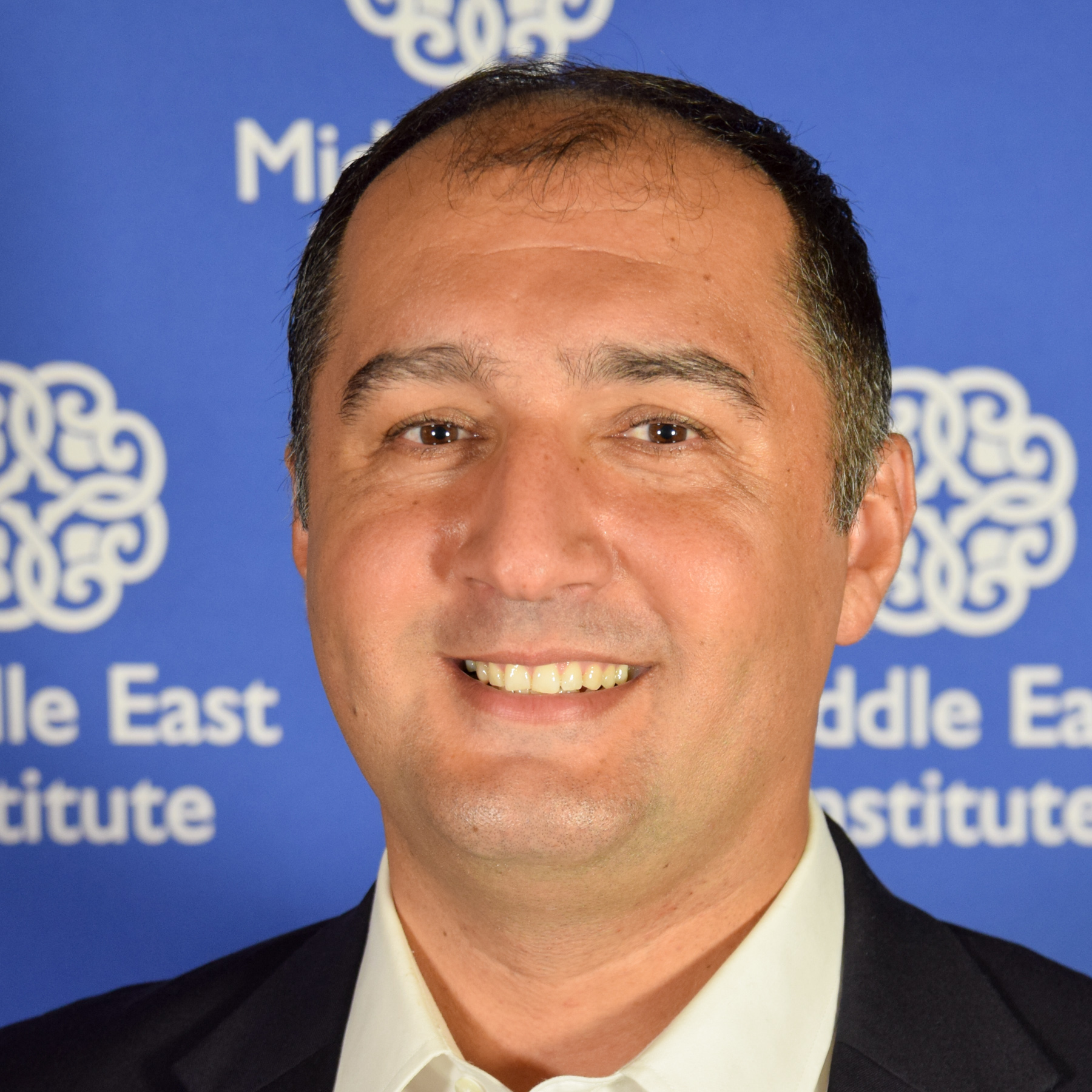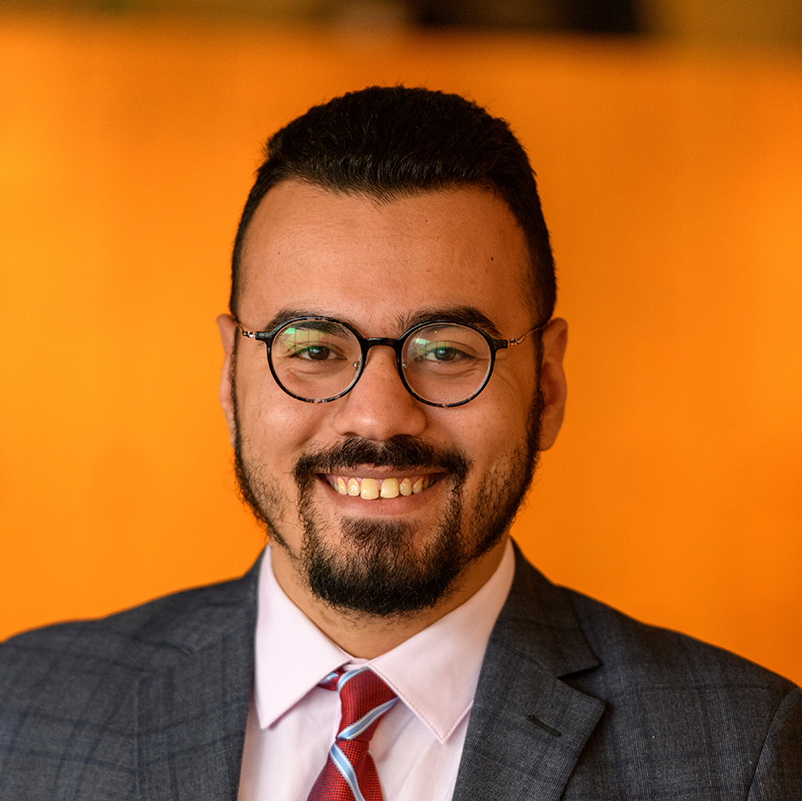Contents:
- Saudi Arabia takes new steps to further strengthen ties to China
- Arbitration ruling tests Baghdad-KRG-Turkey oil relations
- US and UK take an important first step in targeting Assad’s narco-state
- The key policy calculations shaping Iran’s attitude toward Azerbaijani-Israeli ties
- Biden executive order prohibits US government use of commercial spyware
Saudi Arabia takes new steps to further strengthen ties to China
Gerald M. Feierstein
Distinguished Sr. Fellow on U.S. Diplomacy; Director, Arabian Peninsula Affairs

-
Riyadh’s move to become a “dialogue partner” in the Shanghai Cooperation Organization further solidifies its growing ties with Beijing, which have seen a jump forward since Xi Jinping’s visit to the kingdom in 2022.
-
The Saudi-China relationship continues to rest mainly on shared economic interests, a point underscored by Saudi Aramco’s recent announcement that it would buy a 10% stake in China’s Rongsheng Petrochemical group.
Riyadh announced last week that the government had approved a memorandum according the Saudis the status of a “dialogue partner” in the eight-member, Beijing-led Shanghai Cooperation Organization (SCO). China, Russia, India, and Pakistan, along with four Central Asian states, are full members while nine states, including Qatar and Turkey, are dialogue partners.
The move further solidifies Saudi Arabia’s growing ties to its largest trading partner, which have seen a jump forward since Chinese President Xi Jinping’s visit to Riyadh in 2022. Washington will perceive this as a negative development in its global competition for influence with Beijing. But the Saudis have long maintained that they will not be drawn into a U.S.-China-Russia race, focusing instead on enhancing Saudi interests in its relations with all three of its major external partners. The Saudis will be particularly interested in protecting their share of the Chinese energy market from encroachment by cut-rate Russian oil supplies. For China, strengthening its ties with Saudi Arabia not only helps it to secure access to critical energy supplies but also sharpens its image as a major international partner that can employ its ties to all of the regional players to promote peace and stability.
In furtherance of Beijing’s objective of raising its profile as a major presence in the region, the Chinese have highlighted their role in facilitating the early March Saudi-Iranian agreement to restore diplomatic relations. It’s unclear whether that intervention is linked to the Saudi decision to join the SCO, a grouping that “aims to strengthen the relations between member states by deepening political, security, and economic cooperation.” The Saudis did confirm that the matter was discussed during the Xi visit to Riyadh last December.
Despite the political and security focus of the SCO, the Saudi-China relationship continues to rest mainly on shared economic interests. As a sign of deepening economic ties to China, Saudi Aramco also announced last week a new agreement to buy a 10% stake in the privately-owned Rongsheng Petrochemical group, which will provide the Saudis with a crude oil storage facility in eastern China, a long-sought goal for the Saudi company. As part of the deal, the Saudis will provide Rongsheng subsidiary Zhejiang Petrochemical Corp. with petrochemical feedstocks and will receive in return 800,000 tons of plastic raw materials polyethylene and polypropylene and 300,000 tons of other chemical products annually.
Meanwhile, Hong Kong chief executive John Lee, on a tour of the Middle East, is said to be pressing Aramco to list its shares on the Hong Kong stock exchange, which would be a major gain for the city as it seeks to revive its economy.
Arbitration ruling tests Baghdad-KRG-Turkey oil relations
Ruba Husari
Non-Resident Scholar

-
As a result of a ruling from the International Court of Arbitration, the KRG halted its oil exports via Turkey in late March, losing its independent stream of revenues from exports of 400,000 barrels per day.
-
To reach a deal with Baghdad to resolve the dispute, the KRG will need to agree on who controls the oil exports and the sale proceeds from oil produced in the Kurdistan region.
Following a historic ruling by the International Court of Arbitration (ICA) on March 23, the Kurdistan Regional Government (KRG) halted its oil exports via Turkey, losing an independent stream of revenues that it has closely protected from Baghdad’s control since it started 10 years ago. The ICA at the International Chamber of Commerce in Paris ruled in favor of the federal government of Iraq nine years after the latter filed its arbitration case against Turkey and its state pipeline operator Botas, for breach of the bilateral treaty governing the Iraq-Turkish pipeline by allowing the KRG independent use of it. Turkey complied with the ruling and ordered a shutdown of the pipeline to the Mediterranean port of Ceyhan.
Now, to start exporting its 400,000 barrels per day (bpd) again, the KRG needs an agreement with Baghdad. Such an agreement should have two components: who controls the oil exports and who controls the sale proceeds from oil produced in the Kurdistan region of Iraq. Control over the marketing of oil is easier to agree on than where the money is paid, where it’s held, and who controls the disbursements.
In talks earlier this year about the 2023 federal budget law, Baghdad and Erbil had discussed putting all sales, including oil produced from oil fields in the Kurdish region, under the federal government’s state marketer SOMO with some KRG supervision. That should be advantageous for the KRG as SOMO’s official selling prices are higher than the discounted price the KRG uses to sell its oil. The downside is that the KRG won’t be able to fully control sale destination, including to Israel, which has been a major buyer from the KRG. Iraq and Israel do not maintain diplomatic relations, while the KRG has a special relationship with Tel Aviv at several levels, including intelligence cooperation. But as along as the KRG’s crude finds a market, Erbil should be happy that all its available crude gets sold and production operations can restart.
Controlling volumes exported from the KRG also makes it easier for Baghdad to keep in line with its OPEC commitments, especially where cutting output is concerned, since the Iraqi output quota covers the entire volumes produced from federal Iraq. Baghdad has to find a way of dealing with the KRG oil volumes produced under contracts it never recognized as legal under its own interpretation of the constitution.
Controlling the money is more complicated. While Erbil does get its share of the federal budget, which is 95% financed by Baghdad’s oil sales, the KRG’s leaders would not want to put their lifeline under the federal government’s control. The distribution of proceeds in the KRG is not transparent unlike oil sales under the Iraqi Ministry of Oil, where all proceeds go to the Treasury, and payments and disbursements are controlled by the Ministry of Finance, the executor of the federal budget.
The other complication is the KRG’s production-sharing contracts with their foreign oil operators, which get a share of the production, unlike Baghdad’s deals with its foreign oil companies, which get a fixed fee for producing the oil in addition to their billed operations expenditures. The KRG’s payments to operators are not regular and the ruling party determines how much and when companies get paid — to the latter’s discontent.
Controlling revenues from the KRG’s oil sales is also problematic because Erbil had financial agreements and payments arrangements with oil trading companies that advanced loans to the KRG in previous years to be repaid in kind by future oil cargos. The details of those deals are opaque and were never made public in their entirety even though the KRG publishes some kind of financial audits. Current debts are estimated at over $3 billion. The KRG would want Baghdad to pay off those debts if it’s to have any control over oil sales from the Kurdish region, something the federal government is unlikely to agree to.
While the Iraq-Turkey pipeline is closed and the KRG’s exports are halted, Baghdad is also losing the means to export its regular 75,000 bpd from its northern oil fields. This should be a motivation to accelerate negotiations with both Ankara and Erbil to reach agreements to fulfill the arbitration ruling. It will be interesting to see what compromise Iraqi Prime Minister Mohammed Shi’a al-Sudani works out with the Barzani clan ruling the KRG. Traditionally Iraqi leaders have put their personal ambitions and those of their political parties ahead of the national interest in their dealings with the KRG.
Follow on Twitter: @IraqOilForum
US and UK take an important first step in targeting Assad’s narco-state
Charles Lister
Senior Fellow, Director of Syria and Countering Terrorism & Extremism programs

-
On March 28, the U.S. and U.K. imposed sanctions against entities involved in the Syrian regime’s production and international trade in Captagon. The Biden administration is set to release a comprehensive strategy to combat the regime’s Captagon trade in the next few months.
-
That the regime is now offering to constrain its own drug trade as an incentive for others to normalize ties is Assad’s modus operandi: create an acutely destabilizing problem and position yourself as the only solution.
The Biden administration’s March 28 imposition of sanctions against seven centrally important entities involved in the Syrian regime’s production and international trade in the drug Captagon was an important first step taken against a narco-state whose network reaches across the globe. While the U.S. has been covertly engaged in assisting partners in the Middle East in countering Syrian-made Captagon through regional deployments by several law enforcement, intelligence, and military bodies, the drug trade emanating from Syria had not previously triggered public policy moves. The U.S. sanctions were also announced in coordination with the United Kingdom, which imposed sanctions on 11 individuals involved in running the trade, associated both with Syria’s regime and Hezbollah.
The Biden administration has until June 2023 to reveal a comprehensive strategy to combat the Assad regime’s trade in Captagon — per an amendment in the 2023 National Defense Authorization Act. The development of that strategy has included input and plans from the departments of State and Treasury, as well as the intelligence community and Defense Department. Many of the actionable policies will likely be largely covert, but there should be no doubting the extraordinary strategic significance of the Captagon trade within the broader situation in Syria.
In each of 2021 and 2022, publicly declared seizures of Syrian-origin Captagon amounted to between $5 billion and $6 billion, with the drug being intercepted in ports as far afield as Africa and East Asia. Over those two years, Jordan has evolved from a primary transit country into a market in and of itself. The primary destination market, however, lies in the Gulf, which accounts for a substantial majority of public seizures and many others not publicized.
According to regional intelligence officials involved in countering the trade (speaking to both to this author and to international media), only 5-10% of Captagon shipments are being successfully intercepted, which would suggest the total value of Captagon produced and smuggled abroad would be vastly larger than the $5-6 billion of seized product in 2021 and 2022. Of course, such extraordinary sums do not represent the dollar amounts filling the pockets of those recently sanctioned by the U.S. and U.K. Running an international drug smuggling network that spans parts of Africa, South and Central Europe, the Middle East, and Asia costs an inordinate amount of money to sustain. But given how inexpensive Captagon production can be — a Captagon pill costs roughly two cents to produce, but the majority sells in the Gulf for $15-20 each — direct revenue at source would surely be in the billions.
No matter how hard Assad regime apologists try to dismiss reporting about the Captagon trade, there is simply no denying its scale and strategic importance, and how illustrative it has become of a regime that is criminal at its core. That the regime is now offering to constrain its own drug trade as an incentive for others to normalize ties is Bashar al-Assad’s modus operandi: create an acutely destabilizing problem and position yourself as the only solution. That Saudi Arabia, the world’s largest Captagon market, appears to have conceded to such an offer — mediated by the regime’s primary regional normalization advocate, the United Arab Emirates — underlines both the severity of the drug threat and the international community’s collective failure to offer any other meaningful strategy to challenge the regime and its many destabilizing effects. It is not too late for such a holistic strategy, as 40 prominent figures recently declared to President Joe Biden and Secretary of State Antony Blinken, but the clock is ticking.
Follow on Twitter: @Charles_Lister
The key policy calculations shaping Iran’s attitude toward Azerbaijani-Israeli ties
Alex Vatanka
Director of Iran Program and Senior Fellow, Black Sea Program

-
Azerbaijani-Israeli ties are once again in the spotlight following the recent opening of Azerbaijan’s embassy in Israel, but Tehran is still uncertain whether to see Baku as a lost cause or whether it should continue earlier efforts to urge it to balance its interests.
-
Iran’s role in the South Caucasus is now elevated as Russia is essentially absent from its historic position as the region’s top powerbroker.
Last week, Azerbaijan opened its embassy in Israel, the latest Muslim country to do so. The Israeli foreign minister, Eli Cohen, used the occasion to state his hope of “forming a united front against Iran.” Iran has reacted with anger to this development but Tehran is still uncertain whether to see Azerbaijan as a lost cause forever — and therefore as an enemy to be confronted at all cost — or whether it should continue earlier efforts to urge Baku to balance its interests between Iran and Israel. It is proving to be an increasingly difficult business even as the stakes have never been higher.
Azerbaijan has had close relations with Israel for the majority of the time since it regained its independence after the collapse of the Soviet Union in 1991, but ties have never been as solid as they are now. Most recently, Israel played an important role in providing military support to Baku during the 2020 war between Armenia and Azerbaijan. Iran, on the other hand, continues to back Armenia, a Christian country, for all intents and purposes. Iran’s role in the South Caucasus is now elevated as Russia is essentially absent from its historic position as the region’s top powerbroker, as Moscow is busy grappling with its own military invasion of Ukraine.
For now, there are three main policy calculations that are shaping Iran’s attitude toward the burgeoning Azerbaijani-Israeli relationship and developments in the South Caucasus. First, Tehran is determined to minimize not only Israel but also Turkey’s footprint in the region as Iran considers both countries to be its leading rivals for influence in this part of the world. Second, Tehran is adamant to resist any efforts to change the de facto political boundaries of the South Caucasus. It is prepared to fight Baku’s plan to create a new corridor (Zangezur) from mainland Azerbaijan to the exclave of Nakhchivan, which, if realized, would cut Iran off from Armenia geographically. This would undermine Tehran’s broader hopes of one day becoming a regional transportation hub and a bridge for trade between South Asia and Russia through Iran. Finally, given that there are at least twice as many ethnic Azerbaijanis in Iran as in the independent Republic of Azerbaijan, Tehran has to be extremely careful about how it handles tensions with Baku.
Follow on Twitter: @AlexVatanka
Biden executive order prohibits US government use of commercial spyware
Mohammed Soliman
Director, Strategic Technologies and Cyber Security Program

-
On March 27, President Biden signed an executive order prohibiting the U.S. government — law enforcement, defense, or intelligence — from using commercial spyware.
-
The executive order is a pillar of the Biden administration’s strategy of cracking down on digital authoritarianism and is a cornerstone of the Summit for Democracy
On March 27, President Joe Biden signed an executive order prohibiting the U.S. government — law enforcement, defense, or intelligence — from using commercial spyware that enables foreign actors, authoritarian or democratic, to abuse human rights by surveilling human rights activists, journalists, and dissidents around the world. These spyware applications are capable of exploiting flaws on the targets’ phones and accessing location, contacts, messages, call history, photos, and other valuable information, and their dangers have been identified for years by rights groups and security researchers.
The executive order defines commercial spyware as “sophisticated and invasive cyber-surveillance tools sold by vendors to access electronic devices remotely, extract their content, and manipulate their components, all without the knowledge or consent of the devices’ users.” The use of spyware has proliferated in recent years without proper legal authorization, safeguards, or oversight — leading to a high risk of abuse worldwide.
A growing number of authoritarian and democratic governments around the world have deployed spyware to intimidate political dissidents, target human rights activists and journalists, and limit freedom of expression. The executive order is a pillar of the Biden administration’s strategy of cracking down on digital authoritarianism and is a cornerstone of the Summit for Democracy. This was clear from Secretary of State Antony Blinken’s opening remarks at the summit: “We are focused on using technology to try to make our democracies a little bit healthier, a little bit more prosperous, a little more inclusive.”
Another element of the executive order that didn’t receive the necessary attention is the new restrictions and reporting requirements for “Intelligence Community (IC) employees’ post-service employment with foreign governments or companies, including foreign commercial spyware entities.” The objective is to limit the knowledge-sharing and capacity-building of some friendly foreign actors that may use these newly acquired resources for malign purposes.
Follow on Twitter: @ThisIsSoliman
Photo by Xinhua via Getty Images
The Middle East Institute (MEI) is an independent, non-partisan, non-for-profit, educational organization. It does not engage in advocacy and its scholars’ opinions are their own. MEI welcomes financial donations, but retains sole editorial control over its work and its publications reflect only the authors’ views. For a listing of MEI donors, please click here.













